Blanca lives where Mayan milpas, green mountains and white stone roads once predominated, and now she lives with landscapes of Persian lemon plantations that stretch and advance over the jungle. Nohalal is no longer the same thing, it was pure jungle, now there are almost a thousand deforested hectares.
The town of Blanca is not the only one with this situation, because the lemon boom encourages deforestation in Yucatan municipalities such as Tekax, Tzucacab, Oxkutzcab and Ticul, where planting is planned for subsequent export, mainly to Japan and the United States.
“Lemons have had a very high price in recent years. A box of twenty kilos has been worth up to a thousand pesos. This has made many want to replace other crops, including corn, with lemon,” said Blanca, whose last name is omitted for fear of reprisals.
The inhabitants of Nohalal even observe that the companies that arrive are originally from Colima, Michoacán and Veracruz. They install balers and gardens without proper permits in this town in the municipality of Tekax.
“We see that they use water from local wells, fumigate with agrochemicals and don't have treatment plants. Everything is being done out of control,” said Blanca.
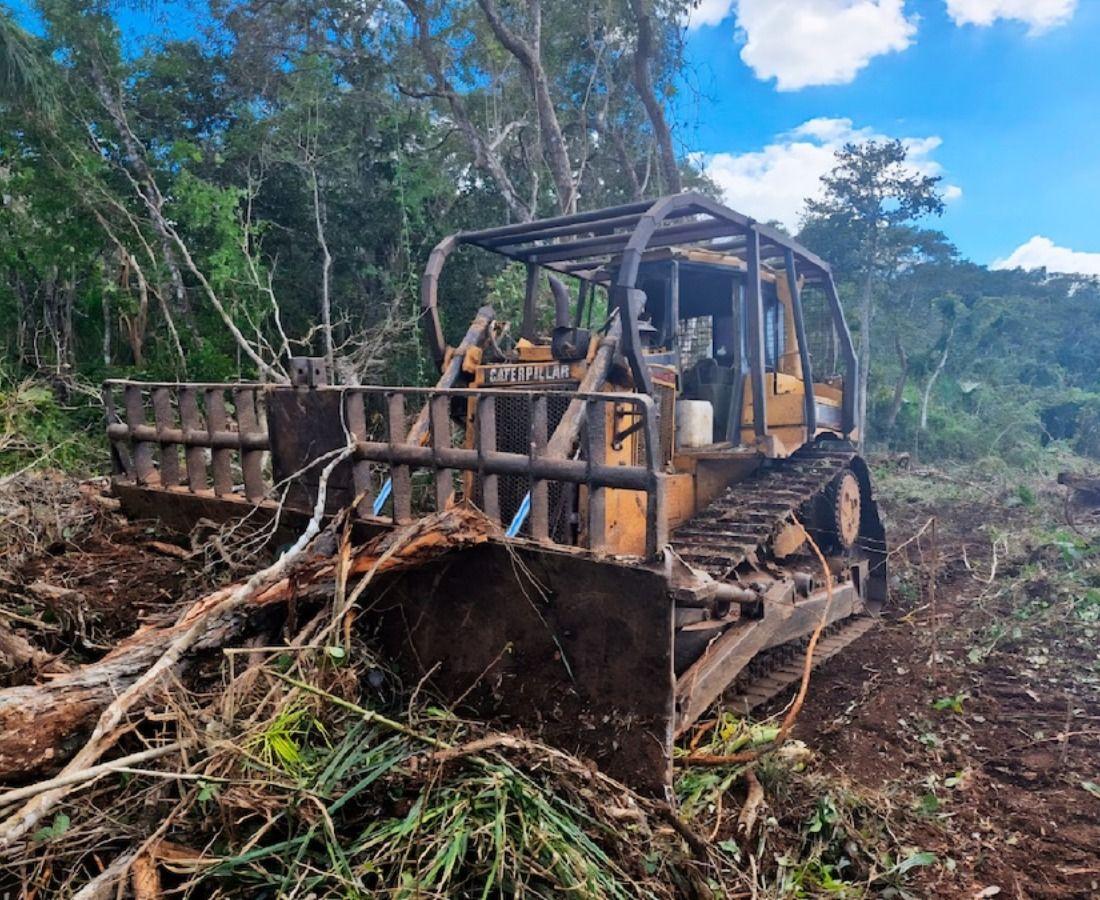 Machinery is detected with which they extract felled vegetation. Source: Profepa.
Machinery is detected with which they extract felled vegetation. Source: Profepa.
The “green diamond” of Yucatán
The lemons that are planted in Yucatán are considered the new “green gold” or the “green diamond” and become a symbol of prosperity for some producers, but behind this boom there is an ecological crisis that is rapidly progressing with tractors, felling and burning of trees in the Mayan jungle.
Between May and August 2025, 25 properties were closed in the Yucatan Peninsula, equivalent to 6,325 hectares of devastated jungle, mostly in areas linked to the lemon agro-industry, according to reports from the Federal Attorney's Office for Environmental Protection (Profepa).
Only in the municipality of Tekax, one of the most affected, was the loss of almost a thousand hectares documented in towns such as Nohalal, Poccheil, Emiliano Zapata and Mesatunich.
“In the case of Tekax and Tzucacab, deforestation is evident. There are areas that are felled within the Puuc Biocultural State Reserve,” said Camilo, a resident of Nohalal, who, together with Blanca, present these issues anonymously because they ensure that companies have government support , since the state's governor, Joaquín Díaz Mena, himself welcomes these investments.
Despite the fact that Profepa has closed several sites due to forest clearing, the people who live nearby say that there are other lands where they continue to cut down.
The depth of the damage is not limited to the loss of trees in Yucatán, but involves the fragmentation of biological corridors that connect with the Balamkú and Calakmul reserves in Campeche, home to the jaguar, ocelated turkey and white-tailed deer, all species at risk of extinction according to NOM-059-SEMARNAT-2010 .
Effects on bees
Researchers from the Colegio de la Frontera Sur (Ecosur), Jaime González Tolentino, Eric Vides Borrell and Rémy Vandame conducted a study to determine the relationship between the death of bees and the use of agrochemicals in lemon growing areas in the municipality of Tekax.
On May 10, 2025, the Nohalal community woke up with thousands of dead bees in front of the hives. Researcher Jaime González confirmed that they were poisoned with the insecticide fipronil, a compound classified as a Highly Dangerous Pesticide (PAP), whose toxicity is enough for 3.8 nanograms per bee to kill half of a population of these insects. The samples taken at Tekax contained 39% more than that lethal dose.
“In the three samples tested, fipronil residues were found above the fatal dose. There is no doubt that the application of this insecticide was the cause of the poisoning,” he said.
The sample collection was carried out after five apiaries reported massive losses. The researchers georeferenced the area and determined an affected area of at least 349 hectares.
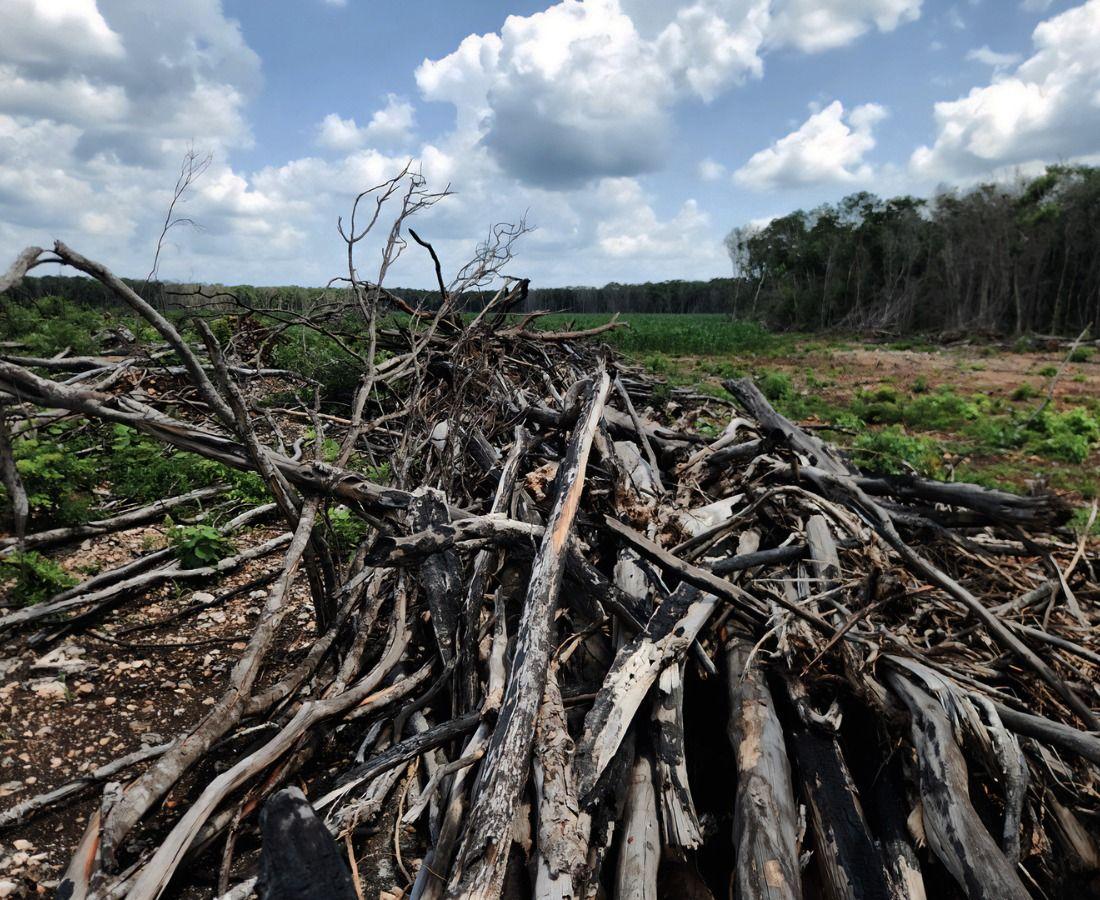 The most affected areas are in the high jungle. Source: Profepa.
The most affected areas are in the high jungle. Source: Profepa.
Wind analysis and satellite observations point to a plot of technified lemon cultivation located north of that area. Local beekeepers reported that days before the poisoning they heard nighttime fumigation with tractors and drones.
The report estimates that the event represented at least 495 days of lost rural employment and economic damage of 465,000 pesos, including the production of honey, the cost of replacing swarms and the loss of pollination services, that is, a fundamental process that allows many plants to reproduce and that maintains the balance of ecosystems and human life.
In Tekax alone, the value of the environmental pollination service amounts to 276.9 million pesos annually, equivalent to 38% of the municipality's agricultural value.
Jaime González explained that fipronil affected honey bees (Apis mellifera) and also native and melipona bees, known in the Mayan language as Xunan Kab', a symbol of the region's biocultural heritage.
“There are more and more kilometers of deforested land to plant lemons. They have done a lot of damage because they use chemicals that kill bees. Last year we lost six hives to heat and fires; this year we lost another one. It's painful because they are three-year jobs that disappear in months,” said Silvia Puc, a meliponiculturist with more than 13 years of experience.
In addition to economic losses, the community has faced health problems that they attribute to the use of agrochemicals. The inhabitants observe cases of cancer, poisoning and water pollution.
“They are poisoning us with the garbage they bring from other countries,” Silvia added.
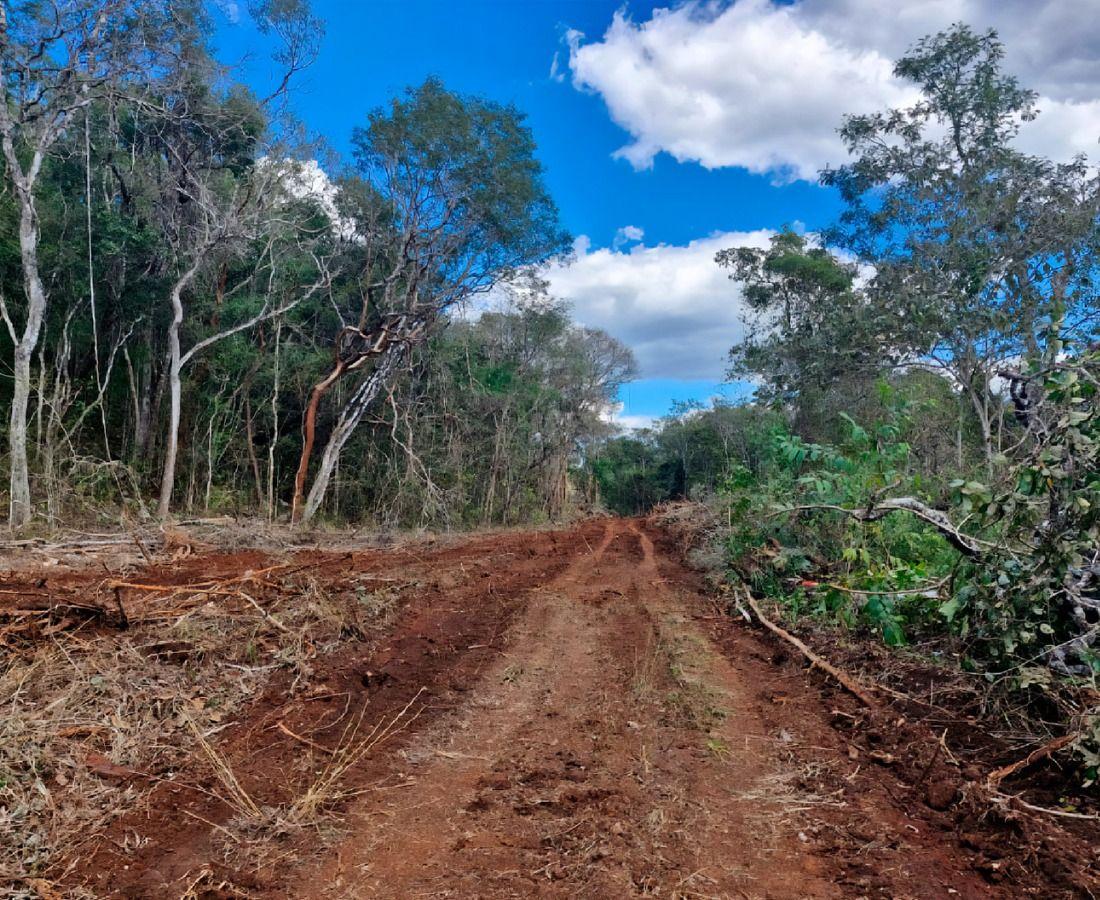 The felling is done to make way for the plantations. Source: Profepa.
The felling is done to make way for the plantations. Source: Profepa.
The Campeche agricultural model
Since 2017, according to the observations of residents of Tekax, workers have arrived from Campeche and Quintana Roo who have leased or purchased land in the “Southern Cone”.
At this time, they noticed that they brought with them a mechanized agro-industrial model, based on monocultures and intensive use of agrochemicals, in this case for the fertilization of lemons.
“We have records that the companies that plant lemons have hired other people to do the deforestation. They are the ones who operate the machinery,” said Blanca.
The devastation of the jungle has been concentrated around the Bala'an K'aax and Puuc reserves, affecting key ecosystems and increasing pressure on the peninsular aquifer. Despite the closures, no company has been criminally sanctioned so far.
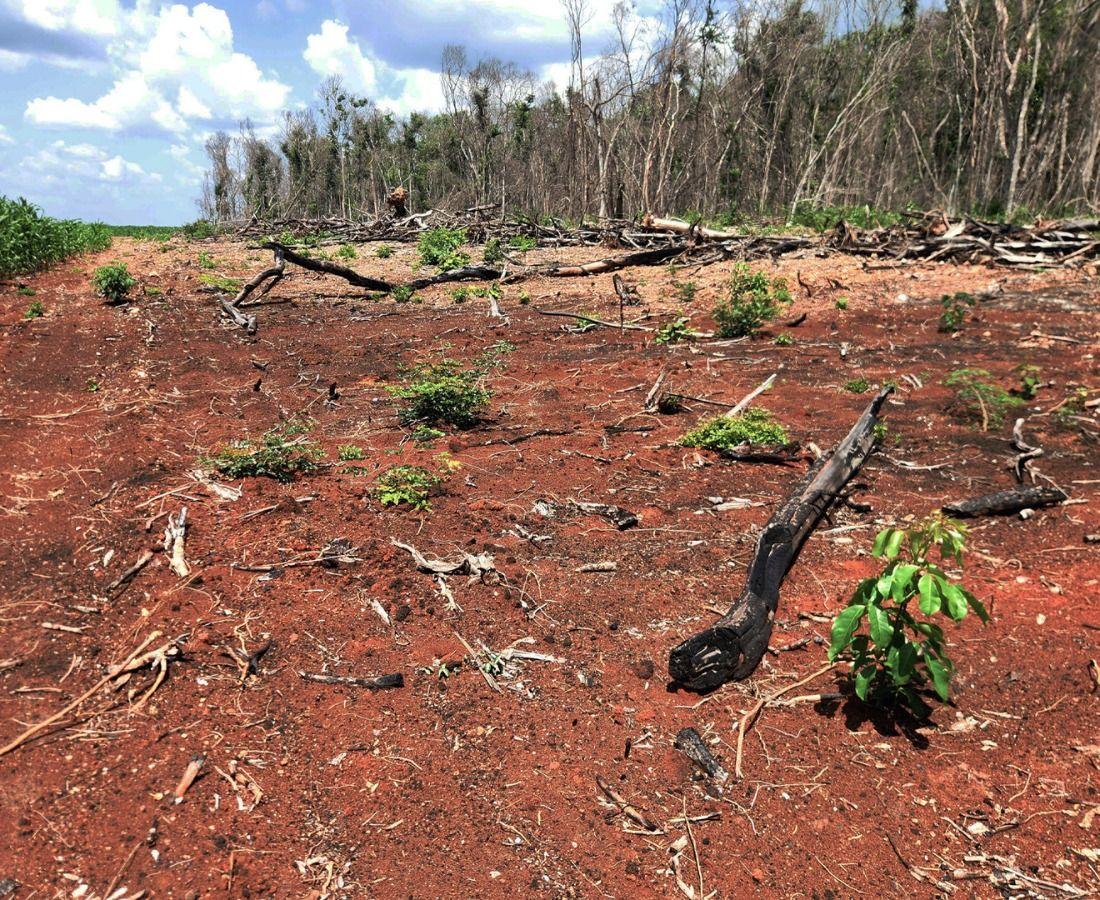 Jungle is felled and burned. Source: Profepa.
Jungle is felled and burned. Source: Profepa.
According to requests made to the Ministry of Environment and Natural Resources (Semarnat), the new citrus projects have not been submitted to community consultation nor do they have environmental impact studies.
In the region, the ejidos denounce that companies have purchased communal land without assemblies, through individuals or intermediaries. In some cases, investors offer money, well drilling, or even alcohol to ejido commissioners to obtain signatures.
“Some ejidatarios agree to sell because they believe that the jungle is no longer worth conserving. We are talking about a dynamic that combines speculation, corruption and dispossession,” Blanca explained.
Added to this situation is the sale of investment lots for “lemon orchards”, promoted by companies that operate as agricultural real estate agencies. On social media, companies such as Citrus Patrimonial offer land in southern Yucatán promising returns from exports to the United States.
The images show deforested machinery and fields, including fumigation with drones.
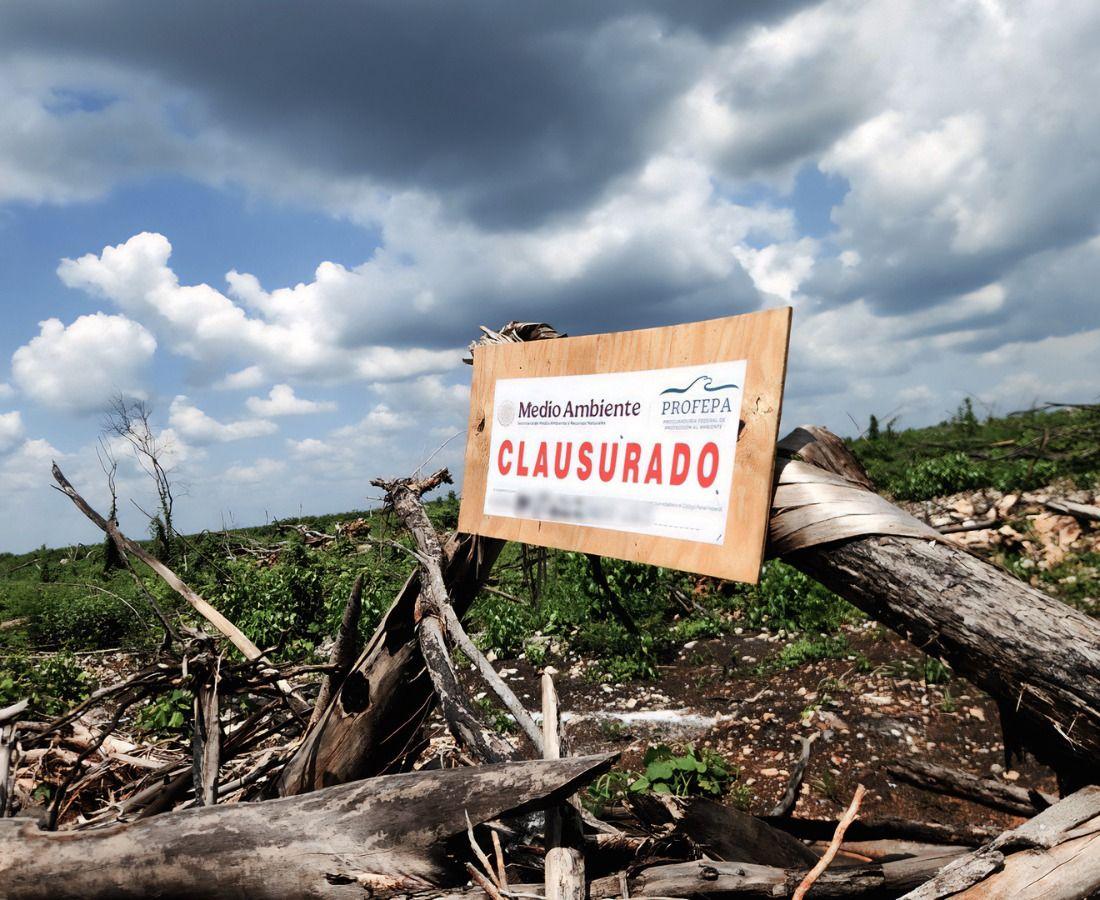 Despite the closures, residents of the area say that logging continues. Source: Profepa.
Despite the closures, residents of the area say that logging continues. Source: Profepa.
Sale of certificates
Under the slogan “Money does grow on our trees”, the company called Citrus Patrimonial promotes an agricultural investment model in Yucatán that claims to be a modern and safe alternative.
The company sells planting certificates to participate in the production and marketing of export-quality Persian lemons, without the investor having to worry about maintenance, taxes or even owning the land.
In exchange, the company guarantees them “consistent, uncomplicated” returns and tax advantages through trusts.
“Forget about the complications that come with land ownership. With Citrus Patrimonial, you acquire a planting certificate... without worries about maintenance or property taxes,” reads the document they provide when you ask for information.
Although the Citrus Patrimonial document does not mention the origin of the plantations or their management practices, its approach to “uncomplicated” profitability omits any reference to sustainability, the use of agrochemicals or respect for the rural communities that historically inhabit and work those lands.
Although representatives of Citrus Patrimonial were asked for information regarding projects being established in Yucatán, they did not respond to emails and calls.
“Lemon became the new green gold, but it's being planted at the expense of our jungle,” Blanca said.
*This article was written by Itzel Chan, who covers coastal communities thanks to the support of the Report for the World program.
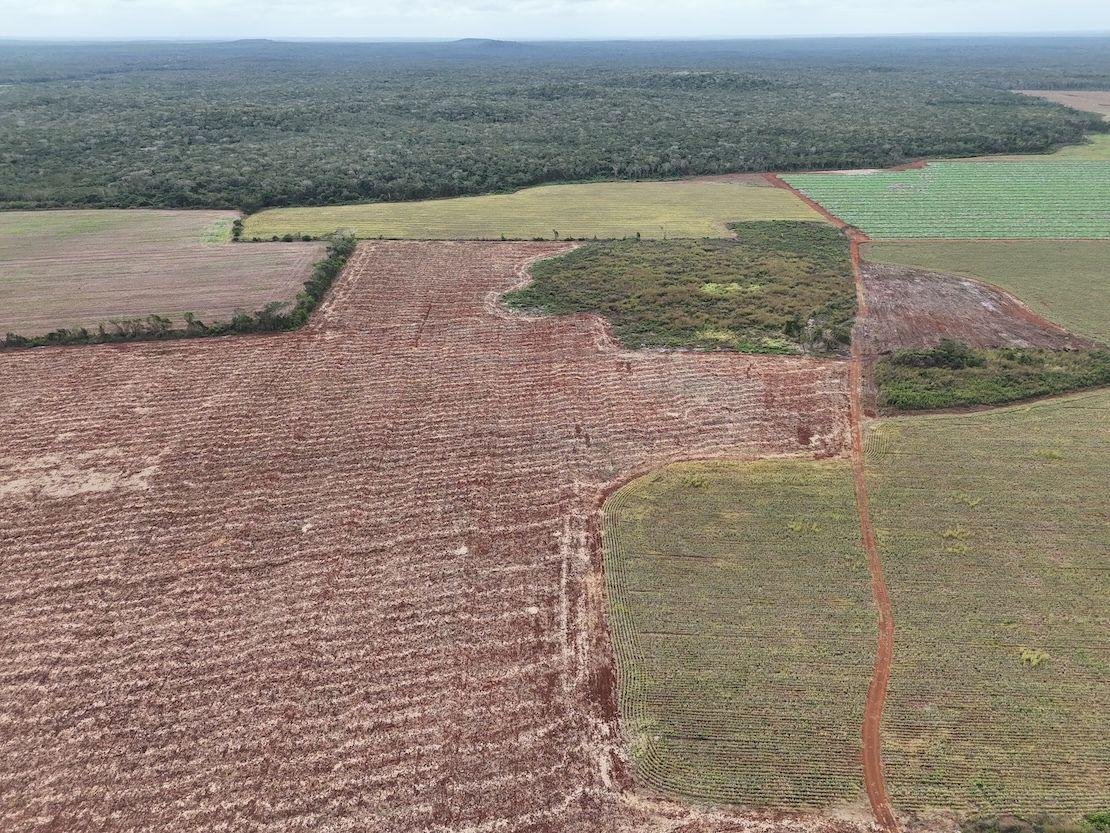



Comentarios (0)